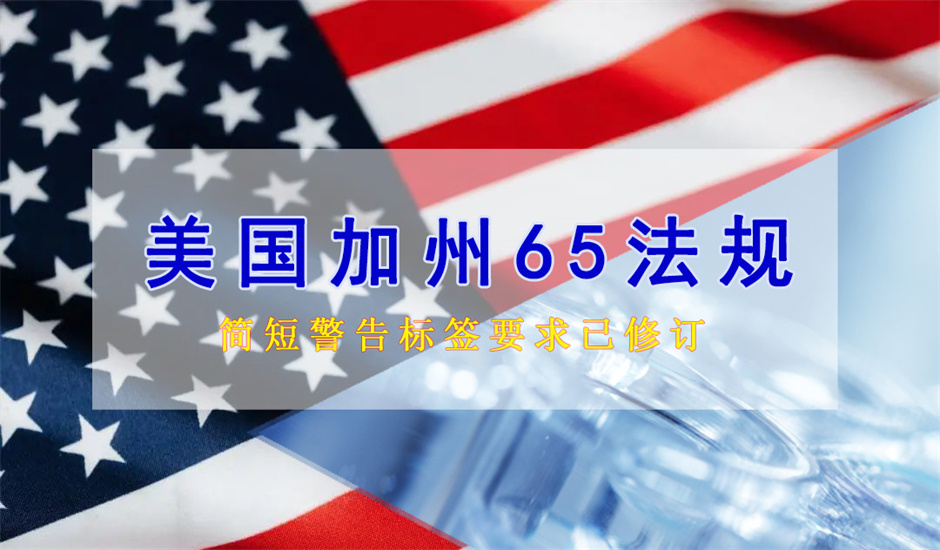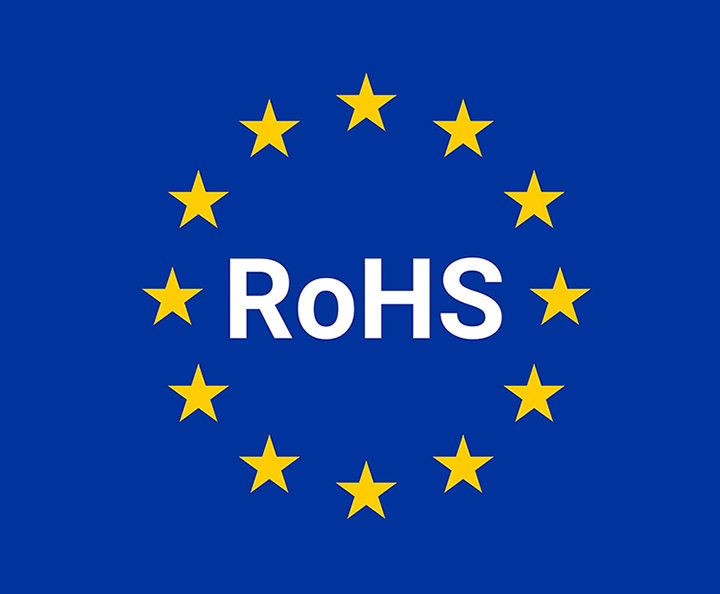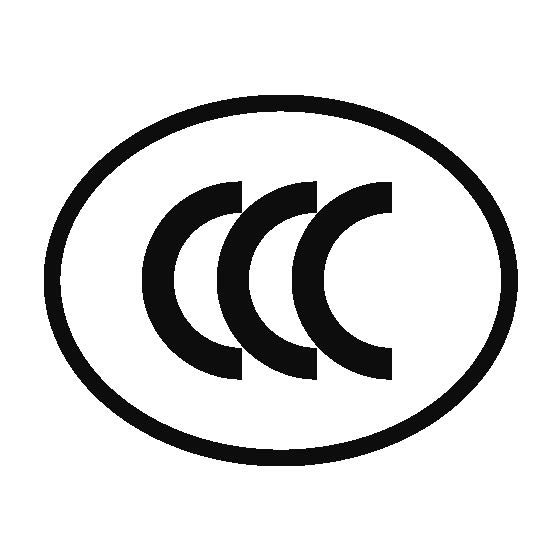China
1. The GB/T 2099.1-2021 and GB/T 1002-2021 standards on which the compulsory certification of household and similar plug and socket products is based have been released on October 11, 2021, and will be implemented on November 1, 2022. The new version of the standard replaces GB/T 2099.1-2008 and GB/T 1002-2008 respectively from the date of implementation.
2. The new standard GB/T 17743-2021 for the limits and measurement methods of radio disturbance characteristics of lighting electrical products has been released on December 31, 2021, and will be implemented on July 1, 2022, replacing GB/T 17743- 2017.
3. GB40165 2021 "Safety Specifications for Lithium-ion Batteries and Battery Packs for Stationary Electronic Equipment" will be implemented on May 1, 2022. Based on this new standard, China Quality Certification Center revised CQC11-464112-2015 "Safety Certification Rules for Secondary Batteries and Battery Packs for Portable/Fixed Electronic Equipment" on April 27, 2022.
Major revisions include:
? The scope of application increases the secondary batteries and battery packs for stationary electronic equipment.
? In accordance with the certification standards, GB40165-2021 "Safety Specifications for Lithium-ion Batteries and Battery Packs for Stationary Electronic Equipment" is added, and IEC62133:2012 and GB/T28164-2011 are deleted.
? The validity period of the certificate is revised to 5 years.
? The certification mark was changed to "CQC Basic Certification Mark".
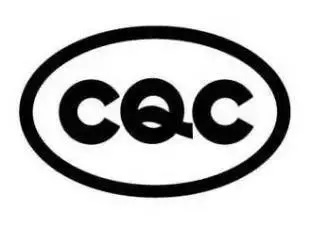
The new version of CQC11-464112-2015 will take effect on May 1, 2022. This revision does not involve reversion of issued certificates.
South Korea
1. The Korea National Institute of Technology and Standards issued a notice on the revision and abolition of the existing electric vehicle conductive charging system standards
As international standards for conductive charging systems for electric vehicles continue to be updated, KATS (Korea National Institute of Technology and Standards) has announced that it will revise the existing standard KC 61851-1 and plan to develop a new standard KC 62752. At that time, the entire content of the existing standard KC 61851-22 will be incorporated into the new version of KC 61851-1 and the new standard KC 62752, and then the existing standard KC 61851-22 will be abolished. The specific effective date will be announced in July 2022.
2. Announcement No. 2022-0146 (2022.5.13) issued by KATS of the Korean Standards Institute
The Korean Institute of Standards plans to update the test requirements for products with UV-C function. The specific revision content and implementation time have not been announced yet.
Standards involved: KC 60335-1, KC 60335-2-65, KC 60335-2-40.
Malaysia
The Trade Descriptions (Authentication and Marking) of Electronic Cigarette Devices Order 2022 was gazetted on 5 April 2022. Locally manufactured or imported vaping devices should comply with the trade description by August 3, 2022. All vaping devices must be tested and certified according to MS 2716:2019, which includes electrical, mechanical, chemical, wireless connectivity (where applicable), EMC and functional testing. Certified e-cigarette devices must bear the SIRIM MS logo before they can be sold and offered to the market.
India
1. Indian Energy Board issues an important notice on room air conditioners and refrigerator products
● The Bureau of Energy of India (BEE) issued a notice that the current energy consumption standards for room air conditioners (fixed and variable speed) will expire on June 30, 2022, and the revised energy consumption standards will take effect from July 1, 2022. Valid until December 31, 2024. Manufacturers wishing to continue producing products that have received the ENERGY STAR label under the old standard version must apply for a downgrade and obtain type approval under the revised energy efficiency standard by June 30, 2022.
● BEE requires all licensees of all refrigerators covered by the BEE Mandatory Standards and Labeling Scheme (existing frost-free refrigerators, direct-cool refrigerator categories and upcoming side-by-side refrigerator categories) to be aware of, from 1 January 2023 From now on, every refrigerator manufactured, imported or sold in India has to be affixed with a QR code and a BEE star label.
2. Five categories of products including smart watches are temporarily included in the TEC exemption scope
India's Department of Telecommunications (DOT), after consultation with India's Ministry of Electronics and Information Technology (MEITY), decided to include the following products in the scope of exemption from MTCTE (TEC) certification:
● Mobile user device/handset
● Smart camera
● Server
● POS machine
● smart watch
Relevant official notices are pending official release.
3. TEC supplements the updated content of the MTCTE certification process
The Telecommunications Engineering Centre (TEC) of India has recently issued a supplement to the MTCTE certification process.
For the third batch of compulsory products (with some exceptions), if the test samples have arrived at the laboratory on or before January 31, 2022, TEC will still accept the product using the ILAC test report to apply for certification before June 30, 2022. However, when applying, the relevant supporting documents (proving that the samples arrived at the laboratory before January 31, 2022) must be uploaded together with the test report.
4. Market supervision requirements for compulsory registration of certified products
On April 28, 2022, the BIS Registration Department/CSMD (Certification, Supervision and Inspection Department) issued a notice on market surveillance requirements for compulsory registration of certified products. The requirements for implementing market surveillance procedures include:
● Collection of market surveillance fees: Licensees should deposit the surveillance fees for their respective products for their certificates, which will be retained by BIS and will only be refunded when the certificates are expired/cancelled.
● Submit Invoice to Authorized Indian Representative: After purchasing, packing/shipping and submitting samples to BIS/BIS accredited laboratory, the actual invoice should be presented to the licensee/authorized Indian representative, the manufacturer/authorized Indian representative shall Invoice payment to supplement costs incurred by BIS and applicable taxes.
● Refund: In the event of expiry/cancellation of the certificate, the licensee/authorized Indian representative may file a refund request for the unpaid balance (without interest) (if any). BIS shall verify and process refund requests in due course.
● Surveillance cost revision: BIS will revise the surveillance cost from time to time. If amended, all licensees are subject to the amended supervision fees.
● Take samples: BIS can take samples from the open market, buyers, shipping points, etc. For foreign manufacturers where the Authorised Indian Representative/Importer is not the end consumer, the manufacturer should submit details of their distribution channels including warehouses, wholesalers, retailers etc. where the product is available.
● Final Phase of Surveillance: Once a test report is received and found to be non-compliant with the applicable standard, the BIS shall notify the licensee/authorized Indian representative and shall take action according to the guidelines to address the non-conformance of the sample checked.
● Handling of samples/residues: Once the monitoring process is completed and the test report is passed, the BIS Registration Department shall notify the licensee/authorized Indian representative through the system port to retrieve the samples from the testing laboratory. The laboratory details are allowed to be provided to the licensee/authorized Indian representative only after the surveillance process has been completed. If the licensee/authorized Indian representative does not retrieve the sample, the laboratory may process the test sample in accordance with the BIS Laboratory Accreditation Scheme (LRS) policy.
China Hong Kong
OFCA issues regulations on the use of the 6GHz frequency band for WLAN equipment
At the end of April 2022, the Office of the Hong Kong Communications Authority (OFCA) issued new regulations - Class Licence for 6GHz equipment and new technology standard HK-CA1081, allowing indoor equipment (with a limit of 24dBm EIRP) and outdoor equipment. The device (limited to 14dBm EIRP) operates in the 5.925-6.425 GHz band.
All relevant equipment shall comply with the standards of ETSI EN 303 687, with the exception of indoor equipment which is allowed to deviate, namely:
● Output power limit increased to 24dBm EIRP
● Power spectral density increased from 10 dBm/MHz to 11 dBm/MHz
Client devices can apply for type approval voluntarily, but 6GHz access point devices should be required to apply for type approval and comply with relevant labeling requirements.
Kazakhstan
On February 24, 2022, the Ministry of Digital Development, Innovation and Aerospace Industry, issued Decree No.64/OD, which amends Decree No.34 of January 21, 2015. No.64/OD approves the frequency band allocation rules, the use of radio frequencies (radio frequency channels), radio electronic equipment (RES) and high frequency equipment (RAM), and the calculation of electromagnetic compatibility for civil radio electronic equipment.
When radio electronic equipment (RES) and high-frequency equipment (RAM) are used in accordance with national regulations, RES and RAM operating under license must not cause radio interference and their users are not required to protect against interference.
Radio electronic equipment (RES) is not permitted to be used to provide communication services with power up to 2W in the 27MHz range and low power transmission as specified in line 19 of Annex 1 of this Regulation.
Technical requirements for SRD (WAS/RLAN)
● 2400—2483.5 MHz - 100mW maximum EIRP, 10mW/1MHz maximum spectral density for wideband modulation types other than FHSS
● 5150—5350 MHz - maximum EIRP of 200mW, maximum spectral density of 10mW/1MHz (indoor use only)
● 5470—5725 MHz - 100mW maximum EIRP and 10mW/1MHz maximum spectral density (indoor use only)
● 5725—5850 MHz - 100mW maximum EIRP and 10mW/1MHz maximum spectral density (indoor use only)
● 17.1—17.3 GHz - 100mW maximum EIRP
● 57—66 GHz - the maximum EIRP is 40dBm, this fixed equipment is not allowed to be used indoors, the maximum average density should be limited to 13 dBm/MHz
The decree takes effect sixty calendar days after its first official publication.
Kuwait
On May 16, 2022, the Communications and Information Technology Regulatory Authority (CITRA) published Resolution No. 88 of 2022, approving amendments to the Wi-Fi regulations. This document is effective from the date of publication.
This document covers the requirements for unauthorised and authorised operation of WLAN devices (applicable, for example, to Wi-Fi hotspots, which provide telecommunication services to the public).
Among them, the technical requirements of WLAN2.4 and 5GHz have not changed, but the technical requirements of WLAN 6GHz have been added as follows:
● Operating frequency range is 5925-6425 MHz
● EIRP value is 200mW
● Must comply with EN 303 687 standard
● Indoor use only
Moldova
WLAN 6GHz requirements covered in ANRCETI Decision 5
Moldova's National Agency for Electronic Communications and Information Technology (ANRCETI) issued Decision No. 5 of March 2022 as Decision No. 126 of June 2, 2009 (on radio frequency bands and radio equipment that do not require a license or technical license) revision. The use of the WLAN 6GHz frequency band is mentioned as follows:
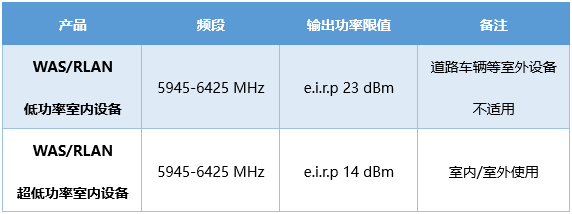
Belarus
Government Issues Resolution No. 270 on Special Provisions for Conformity Assessment
On May 5, 2022, the Belarusian government issued Resolution No. 270, which made some special provisions for the conformity assessment and type certification process. According to the resolution, Belarusian certificates of conformity and declarations (i.e. CoC and DoC), which expire between May 6, 2022 and September 1, 2022, can be extended for 12 months.
In addition, manufacturers and importers are not required to provide conformity assessment documents when importing spare parts for repair or components of products/machines manufactured locally in Belarus.
This resolution will take effect on May 6, 2022 and expire on December 31, 2023.
Oman
Phase 1 of Oman's compliance plan to begin on 5 June 2022
According to the Ministerial Decree (90/2021) issued by the Ministry of Commerce, Industry and Investment Promotion of Oman on December 5, 2021, the Oman compliance program will start on June 5, 2022, while it targets groups 2 and 3 controls Phases two and three of the product are expected to begin in 2023 and early 2024, respectively.
The first phase of implementation includes the following three control products:
● dishwasher
● Washing machines with a capacity greater than 10kg and less than or equal to 25kg
● vacuum cleaner
The Oman Certificate of Conformity will be issued by a third-party conformity assessment agency designated by the Directorate General of Standards and Metrology.
Products that have been certified with the Gulf Conformity Mark and/or the Oman Quality Mark are deemed to have met the requirements of this regulation.
Qatar
CRA releases Wi-Fi 6E-related frequency band licensing regulations
On April 26, 2022, the Qatar Communications Authority (CRA) issued regulations for the licensing of the WIFI 6E band for wireless local area network (RLAN) equipment. The CRA announced that, from today, the 6 GHz low-band (ie, 5925--6425 MHz) portion is available for RLAN equipment. Please refer to the following for relevant technical requirements:

Jordan
TRC updates WLAN device regulations
On April 13, 2022, the Jordanian Telecommunications Regulatory Commission (TRC) updated the regulations for WLAN equipment. This update is in response to a public consultation to identify the 6 GHz frequency band that can be used for Wi-Fi technology.
The updates are as follows:
● 5250-5350 MHz; the maximum EIRP power is 23dBm; for indoor and outdoor use;
● 5470-5725 MHz; maximum EIRP power is 30dBm; indoor use only;
● 5925 6425 MHz; maximum EIRP power is 25dBm; for indoor and outdoor use;
● 57-71 GHz; the maximum EIRP power is 40dBm and the transmit power is lower than 27dBm.
Israel
● Israel has updated the new safety standard SI 900 section 2.21 and the performance standard SI 69 for storage water heaters, the old standard has been withdrawn on April 10, 2022.
● Israel has updated the standard SI 60669 part 1 of the switchgear standard for household and similar fixed electrical installations, the old version of the standard SI 33 part 1 has been withdrawn on April 10, 2022.
C?te d'Ivoire
ARTCI seeks comments on its plans to implement 5G
On April 26, 2022, ARTCI launched a public consultation on 5G implementation.
Among the advisory frequency bands confirmed by C?te d'Ivoire, the advisory document lists 700MHz, 3.5GHz and 24GHZ.
Guinea
ARPT intends to establish an accredited laboratory
Through a tender issued in May 2022, ARPT has indicated its intention to purchase test kits to validate WWAN, Wi-Fi and other SRD equipment. All the while, authorities have requested samples, but only for visual inspection. Authorities now appear to be planning to move to domestic testing, but the timing has not yet been announced.
Thailand
On April 26, 2022, the Ministry of Industry of Thailand stipulated that 20 types of audio-visual, information and communication technology (AV/ICT) equipment should be mandatory to comply with the TIS 62368-1(2563) standard.
The list of standard mandatory products is as follows:
? Radio
? TV
? Signal amplifier
? CD player
? Video game console
? Wireless Microphone Receiver
? Radio receiver
? TV Receiver
? Satellite receiver
? Speakers and Amplifiers
? Signal Converter
? Signal Mixer
? Audio Mixer
? Electronic musical instruments
? Audio and video player
? Network Video and Audio Receiver
? Cable TV Receiver
? Audio Video Converter
? Power supply for electronic equipment
? Phone and Tablet Power Supplies
The regulation will take effect 180 days from the date of publication in the Government Gazette, and 480 days for power adapters for mobile phones and tablets.
Brazil
1. INMETRO: Publish the comprehensive regulation Ordinance No.178/2022
INMETRO issued a comprehensive regulation (Ordinance No. 178/2022), which reviewed the regulatory expired documents and announced the withdrawal of the normative act, which came into effect on May 2, 2022. The main contents of the regulation are as follows:
● Revocation of regulations related to extraordinary measures to carry out conformity assessment activities during the novel coronavirus pandemic (COVID-19);
● Postponement of testing and shipment of unsampled products can only be permitted until November 2, 2022, with appropriate justification based on the impact/restriction arising from COVID-19;
● Remote audits can only take place until November 2, 2022, but client requests must be submitted by August 2, 2022, with appropriate justification based on the impact/restriction arising from COVID-19;
● Audit deferrals can only take place until November 2, 2022, but client requests must be submitted by August 2, 2022, with appropriate justification based on the impact/restrictions imposed by COVID-19.
2. ANATEL: New Act No. 5159 issued
The Brazilian National Telecommunications Agency (ANATEL) has issued a new Act No. 5159 on the testing requirements for mobile phone chargers.
The new act applies to wired and wireless power supplies and chargers used with cell phones, and clarifies electromagnetic compatibility and safety testing requirements for these types of products. In addition, the built-in car charger sold with the vehicle can be purchased voluntarily with the ANATEL safety label.
The new bill will go into effect in 180 days, on October 26, replacing the existing Bill 3481.
Mexico
On March 17, 2022, the Mexican Secretariat of Economy published a new standard NMX-1-J-324-NYCE-ANCE-2022 on safety requirements and test methods for integrated light-emitting diode (LED) luminaires for general lighting, which will Effective September 13, 2022.
This standard specifies safety and interchangeability requirements, as well as the test methods and conditions required to demonstrate compliance for integrated (LED) lamps suitable for domestic and similar general lighting purposes, with the following characteristics:
● Rated power≤150W;
● Rated voltage>50V,≤277V;
● Lamp caps with specific characteristics.
Australia
1. On June 15, 2021, EESS Australia published an Information Bulletin (#21-030) on relevant standards applicable to power supplies and battery chargers, as well as other information requirements that must be included in the user instructions. The announcement is effective from June 15, 2022.
The purpose of this bulletin is to understand the correct relevant standards for power supplies and battery chargers (electrical equipment in the low voltage range) based on the definitions and relevant standards set out in AS/NZS 4417.2.
The following are the six main product categories and testing standards:
01 General purpose power adapter (not supplied with specific equipment)
The relevant safety standard is AS/NZS 61558.2.6, and the switching power supply is AS/NZS 61558.2.16
Note: The certificate and instruction manual do not need to specify any particular brand or type of equipment to be used with the power adapter
02 Power adapters for electrical appliances provided by specific Class III equipment covered by the AS/NZS 60335 series of standards
The relevant safety standard is the relevant AS/NZS 60335 series of standards for electrical appliances (power adapters and Class III equipment need to be tested against AS/NZS 60335.1 and related Part 2)
Note: The brand and type of equipment used with the power adapter must be specified on the certificate and instruction manual
03 Power adapters supplied with certain (information technology equipment, audio, video) electronic equipment
The relevant safety standard is AS/NZS 60065 or AS/NZS 60950.1 (both superseded by AS/NZS 62368.1 on 15 February 2022)
Note: The brand and type of equipment used with the power adapter must be specified on the certificate and instruction manual
04 Power adapter supplied with or used with lighting equipment
Relevant safety standards
a. Electronic type:
①Light-emitting semiconductor driver: AS/NZS 61347.2.13
②Other: AS/NZS 61347.2.2
b. Ferromagnetic type: AS/NZS 61558.2.6
Note: The certificate and instruction manual must specify the type used with the power adapter (if sold with other equipment, the brand of the equipment must also be provided)
05 Battery Charger
The relevant safety standard is AS/NZS 60335.2.29
Note: The type of battery to be charged by the battery charger (such as lead-acid, nickel-metal hydride, lithium-ion, etc.) must be specified on the certificate and instruction manual in accordance with the requirements of Article 7 of AS/NZS 60335.2.29
06 Battery chargers equipped with certain electronic (information technology equipment, audio, video) equipment
The relevant safety standard is AS/NZS 62368.1 or AS/NZS 60335.2.29
Note: If AS/NZS 62368.1 is used, the certificate and instruction manual need to specify the brand and type of equipment the battery charger will be used on (so the instruction manual should also provide relevant information)
As of June 15, 2022, any application for certification for scenarios 02, 03, 04 or 06 that does not include the make and type of device in the user description for the power supply or battery charger will be rejected by UL ANZ.
2. The mandatory date for introducing energy efficiency requirements for air conditioners above 65 kilowatts (kW) has been postponed by 6 months to October 1, 2022. The new energy efficiency requirements for air conditioners above 65 kW include the following:
● Enforcement date: October 1, 2022;
● Products must meet minimum energy performance standards (MEPS);
● Provide seasonal energy efficiency information when registering product models;
● Model registration fee (please consult our sales);
● The registration period is 5 years. If you choose to register the product model before October 1, 2022, in addition to the five-year registration cycle of the product itself, you will also obtain an additional registration period from the date of registration to the date of enforcement.
Warm Tips
ZRLK has been focusing on the testing and certification of consumer electronic and electrical products in 18 years, always paying attention to the changes in regulations of various countries, and providing customers with one-stop testing and certification services to ensure that your products can quickly enter the target market. If you have electronic and electrical products and batteries or consumer smart products containing batteries that need to be tested and certified, please feel free to contact us, our engineers will serve you as soon as possible!


